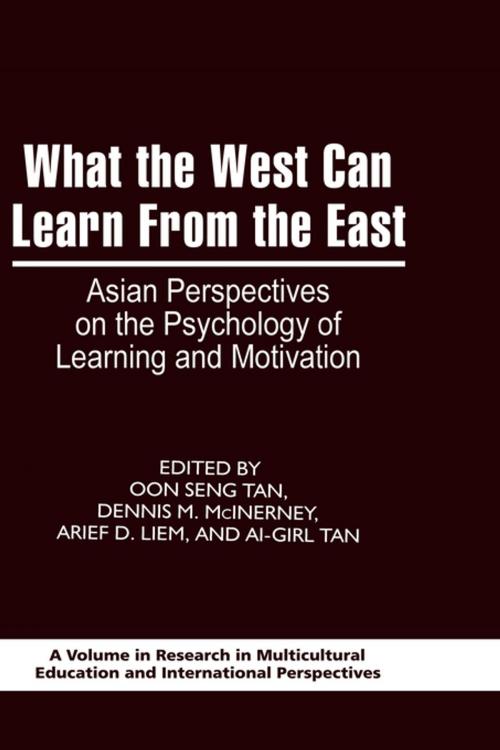What the West Can Learn From the East
Asian Perspectives on the Psychology of Learning and Motivation
Nonfiction, Reference & Language, Education & Teaching, Educational Theory, Educational Psychology, Health & Well Being, Psychology| Author: | ISBN: | 9781607529989 | |
| Publisher: | Information Age Publishing | Publication: | October 1, 2008 |
| Imprint: | Information Age Publishing | Language: | English |
| Author: | |
| ISBN: | 9781607529989 |
| Publisher: | Information Age Publishing |
| Publication: | October 1, 2008 |
| Imprint: | Information Age Publishing |
| Language: | English |
Education, East and West, is today mostly Western in orientation. Asian perspectives remain relatively unrepresented in curricula, pedagogy and administrative structures. This volume has brought together authors researching in Asia who redress this imbalance and describe what the West can learn from the East. Topics covered include conceptions of and approaches to effective learning and teaching, selfregulated learning, perceived causes of success and failure, valuing of education, peer influences and classroom behavior, creativity, teacher commitment, class size, motivation, future goals, and other influences on effective learning. Shared insights from the research and theorizing presented should provide a fascinating perspectives for educators and administrators charged with providing cuttingedge, researchbased educational best practices in diverse cultural and social environments internationally.
Education, East and West, is today mostly Western in orientation. Asian perspectives remain relatively unrepresented in curricula, pedagogy and administrative structures. This volume has brought together authors researching in Asia who redress this imbalance and describe what the West can learn from the East. Topics covered include conceptions of and approaches to effective learning and teaching, selfregulated learning, perceived causes of success and failure, valuing of education, peer influences and classroom behavior, creativity, teacher commitment, class size, motivation, future goals, and other influences on effective learning. Shared insights from the research and theorizing presented should provide a fascinating perspectives for educators and administrators charged with providing cuttingedge, researchbased educational best practices in diverse cultural and social environments internationally.















